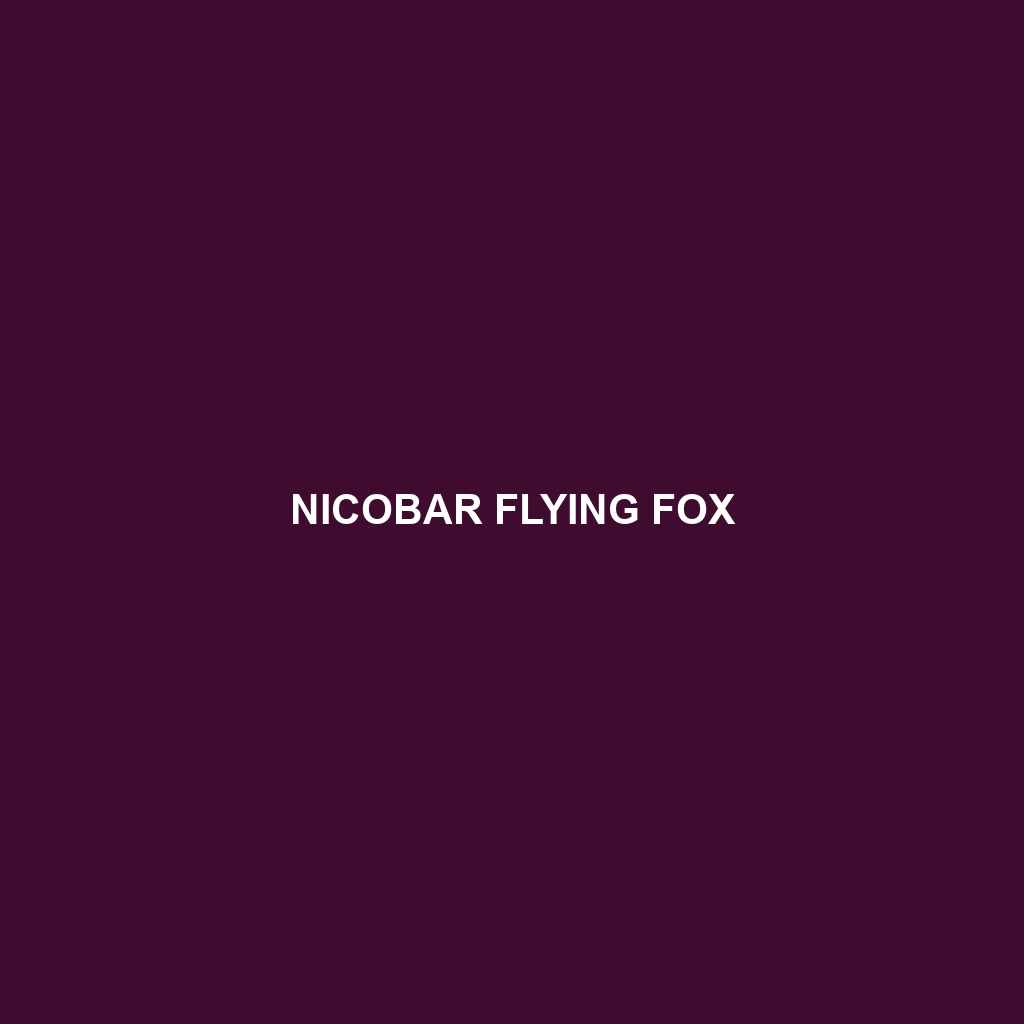Nicobar Flying Fox: Species Description
Common Name: Nicobar Flying Fox
Scientific Name: Pteropus faunulus
Habitat: The Nicobar Flying Fox is primarily found in the Nicobar Islands, a group of islands located in the Bay of Bengal, India. This species thrives in tropical rainforests and coastal mangroves, where they roost in large colonies high in the trees, benefiting from the dense vegetation that provides both shelter and food sources.
Physical Characteristics: The Nicobar Flying Fox is a medium-sized bat with a wingspan of up to 1.5 meters (approximately 5 feet). Its fur is predominantly a striking dark brown with lighter gray or golden tones on the face and neck. Notable features include large, expressive eyes and elongated, slender wings that facilitate their ability to glide gracefully through the forest canopies. Their size and distinctive coloration make them easily recognizable among other bat species.
Behavior: This species is largely nocturnal, becoming active at dusk. The Nicobar Flying Fox typically roosts in groups during the day, often in large colonies that can consist of hundreds of individuals. They are known to travel significant distances each night in search of food, primarily engaging in foraging behavior that includes social interactions among colony members.
Diet: The diet of the Nicobar Flying Fox primarily consists of fruits and nectar, with a particular preference for figs, papayas, and flowers from tropical plants. Their feeding habits play a crucial role in seed dispersal and pollination, making them important contributors to the health of their native ecosystems.
Reproduction: The Nicobar Flying Fox typically breeds once a year, with the breeding season coinciding with the availability of food resources. Females give birth to a single pup, which they nurture for several months before weaning. Notable behaviors during the nurturing process include grooming and protective group behavior, which enhances survival rates of the young bats.
Conservation Status: The Nicobar Flying Fox is currently classified as vulnerable. Habitat loss, primarily due to deforestation and human encroachment, poses significant risks to their population. Conservation efforts are critical to ensuring the survival of this unique species and their habitat.
Interesting Facts: One of the intriguing aspects of the Nicobar Flying Fox is its ability to glide for long distances, enabling it to navigate through the dense forestation of the Nicobar Islands with ease. Additionally, they are one of the largest bats in the world, which adds to their appeal among wildlife enthusiasts.
Role in Ecosystem: As a frugivore, the Nicobar Flying Fox plays a vital role in its ecosystem by aiding in seed dispersal and pollination for various tropical plants. This interaction promotes biodiversity and helps maintain the health of their native habitats. Their feeding habits also support other species within the same ecosystem, thus emphasizing their importance in the food web.
